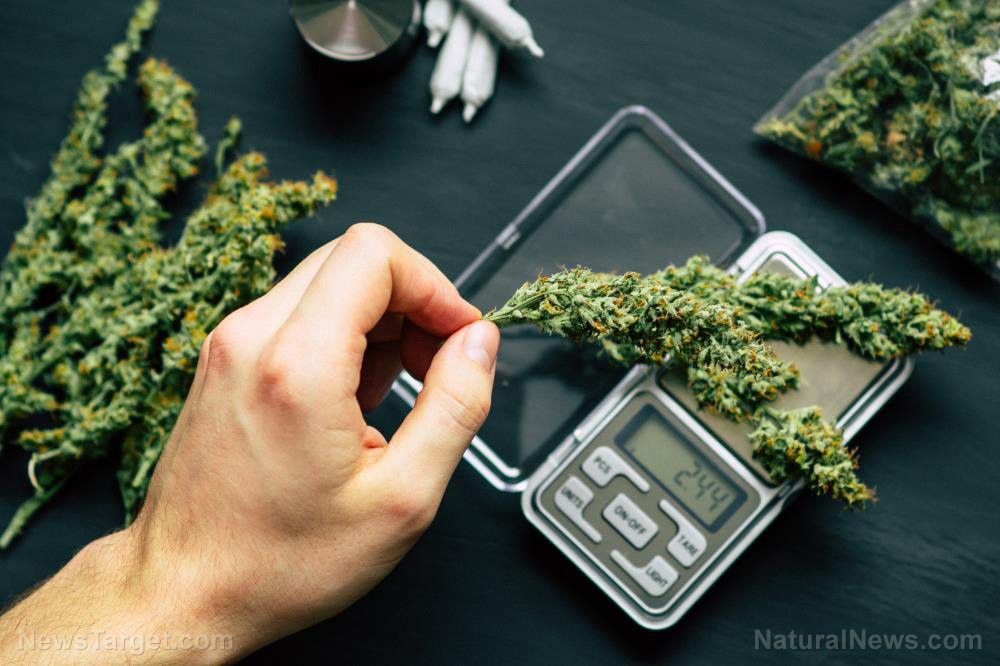
OHIO GOES GREEN: BUCKEYE STATE ROLLS OUT MEDICAL MARIJUANA PROGRAM -CAN IT REPLACE OPIOIDS?
Ralph Flores

Early this year, the state of Ohio began allowing the sale of medical marijuana. Half a year in, the Buckeye state is reaping the benefits of this decision: It has helped create jobs, and many people suffering from severe health issues – from multiple sclerosis to post-traumatic stress disorder – can finally find relief in the comfort of their home state.
There’s still work to be done: Just this month, the Ohio State Medical Board has tabled the addition of anxiety and autism spectrum disorder to its list of qualifying conditions for purchasing medical marijuana. It had also vetoed against including depression, insomnia, and opioid use disorder to the list.
The last item on the list is particularly interesting. The opioid epidemic remains to be a public health emergency, with around 130 people dying from opioid-related drug overdoses every day and over 11.4 million cases of opioid misuse per year. The state is certainly no stranger to the opioid epidemic. In 2017, it had the highest death rates per capita in the country, with opioid overdoses resulting in over 5,000 deaths.
However, using medical marijuana for treating substance addictions – like that from opioids – is a topic that lights up both sides of the debate. For those against it, it’s like switching from one habit-forming drug to another. Proponents, on the other hand, refute this claim fully, saying that medical marijuana addresses symptoms beyond addiction. (Related: Opioid users in Illinois may turn to medical marijuana instead, thanks to efforts aimed at reducing the overdose epidemic.)
How viable is medical marijuana in treating opioid addiction?
In a recent article published by the University of Arkansas at Little Rock, professor Rhet Smith and his team showed that access to medical marijuana at the county level is directly linked to reduced rates of opioid- and heroin-related deaths.
In the report, Smith and his team looked at mortality records from the Centers for Disease Control and Prevention to determine whether the presence of a dispensary in counties that have medical cannabis laws can positively affect deaths caused by opioids (both synthetic and prescription) and heroin.
They found a significant decline in opioid-related deaths in counties that have a dispensary compared to those without one. Similarly, heroin-related deaths also decreased by over 10 percent in these counties.
“The medical cannabis laws themselves aren’t what’s having this effect of reducing mortality rates,” Smith said. “Once the dispensaries open and people can legally access these drugs, that is when you see the changes in mortality rates.”
A separate study in the Journal of the American Medical Association also had similar results, albeit at the state level. Researchers found that states with a medical marijuana program in place had significantly lower death rates than states that did not.
Perhaps the most notable benefit that medical marijuana has is its ability to relieve withdrawal symptoms from opioid use. Most people who are treated for opioid addiction — such as to heroin and painkillers — are given buprenorphine to help wean off the drugs. However, reducing the dose can bring about awful withdrawal symptoms. Medical marijuana can help by lowering feelings of anxiety, cravings, and nausea. Simultaneously, it can also improve appetite and mood.
Even more, studies reveal that medical marijuana can help people use fewer opiates when used instead of prescription drugs for managing chronic pain.
The Buckeye state isn’t out of the woods yet when it comes to its opioid problem. However, with the state slowly putting regulations in place for medical marijuana, it’s an excellent start for people suffering from addiction, chronic pain, and other medical conditions.
Sources include:
https://www.naturalnews.com/2019-06-26-ohio-rolls-out-medical-marijuana-program-can-it-replace-opioids.html
